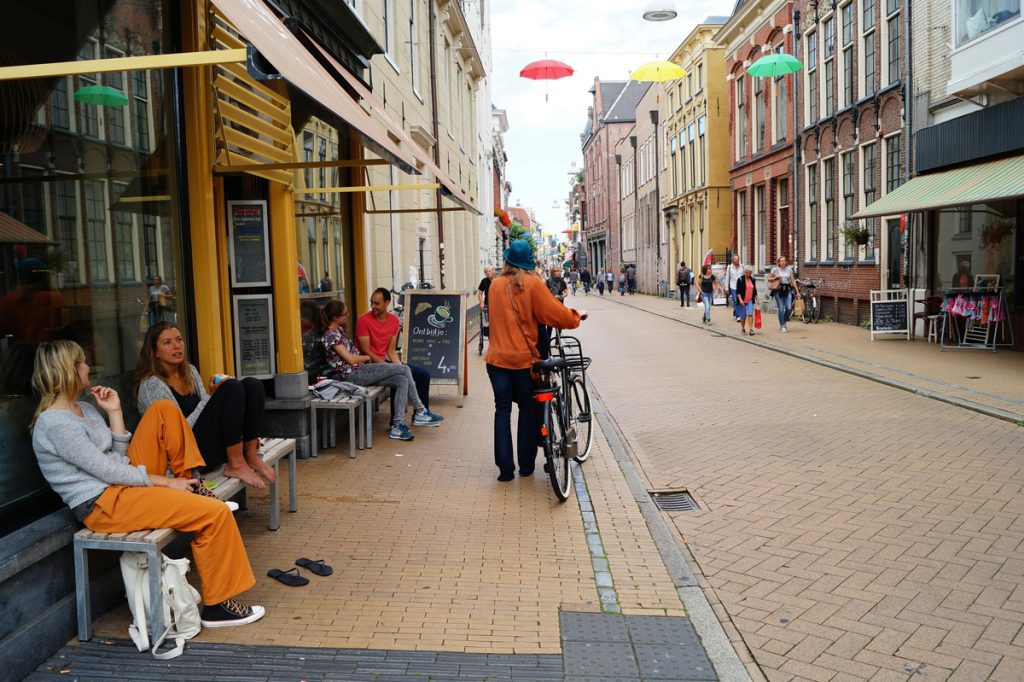In our bustling cities, the constant rush of urban life can make us feel like mere cogs in a grand machine without any sense of community. Yet our urban landscapes also offer opportunities to forge strong connections. These connections can significantly enhance our mental wellness. For younger city dwellers especially, these bonds can be essential to combat feelings of isolation and loneliness and boost mental well-being.
This article will explore how getting out in the community and engaging with those around us can benefit our mental health.
The Connection Between Community and Mental Health
First, what does the community have to do with mental health? Imagine starting your day with a friendly nod from the barista at your favorite breakfast spot or a wave from your neighbor as you head to work. These seemingly small interactions can weave a tapestry of support and connection that is vital for our mental health.
Research shows that strong social connections are a cornerstone of mental well-being because they provide a sense of belonging and reduce stress. When we are part of a community, we have people to share our joys and challenges with, which can considerably lighten our mental load.
Additionally, these connections often provide practical support, such as a local group organizing activities that bring joy and purpose to the community. This network of relationships can act as a safety net, helping us navigate life’s ups and downs with greater resilience.
Tackling Urban Isolation and Loneliness
Despite the multitudes of people, city life can be particularly isolating for some. It’s easy to feel like just another face in the crowd, especially for the younger population navigating new careers and lifestyles far from home. Neighborhood connections offer a remedy, transforming the anonymity of the urban jungle into a familiar, supportive network. As we’re naturally social creatures, even simple engagement with those around us can turn fleeting encounters into meaningful relationships that ward off isolation.
How to Create Meaningful Community Bonds
Building these connections might sound daunting, but it’s all about embracing small, consistent actions. Here’s how you can create a vibrant web of neighborhood ties:
Sign up for local groups and clubs
Urban areas are teeming with groups and clubs for every interest imaginable. From dance classes to coding meetups, these gatherings are prime spots to meet people who share your passions. Consider visiting your local community center or library to find bulletin boards with postings about clubs and groups. Websites such as Meetup.com are also excellent resources for finding nearby gatherings.
Celebrate community events
Whether it’s a street festival, farmers market, or neighborhood cleanup, these events are excellent opportunities to mingle. They also help foster a sense of shared identity and pride in your community. Check your city’s website or social media pages for event listings. Then, mark your calendar and try to attend at least one event per month to start building connections.
Volunteer your time
Getting involved in volunteer work can be incredibly rewarding. It’s a chance to give back while connecting with like-minded individuals who are equally invested in the well-being of your neighborhood. Reach out to local nonprofits, schools, or community centers to ask about volunteer opportunities. You could also join a regular volunteer group to develop ongoing relationships.
Become a regular at local spots
Frequenting breakfast restaurants, cafes, and shops can lead to regular, meaningful interactions. Breakfast places, in particular, are fantastic for striking up conversations and building relationships over a delicious meal. Supporting local businesses in this way strengthens the economic and social fabric of your community. Pick a favorite breakfast spot and make it a habit to visit weekly. Just don’t be shy about starting up a conversation.
Connect with social media
Platforms such as Nextdoor and local Facebook groups can keep you informed about community activities and help you connect with neighbors online, paving the way for real-world interactions. Join neighborhood-specific social media groups and participate in discussions. Post about local events you plan to attend and invite others to join you.
Enhancing Mental Health Through Community
Strong neighborhood connections do more than stave off loneliness; they create a nurturing environment where you can share experiences, seek advice, and offer support. This sense of belonging is a powerful antidote to stress and anxiety, boosting self-esteem and resilience.
Actively participating in your local community also helps build a culture of mutual support. This culture not only benefits individuals but also enhances the overall mental well-being of the neighborhood. After all, a connected community with residents looking out for each other and encouraging a sense of safety and harmony is more likely to be a place where you can thrive.
Fostering Community: Your Key to Mental Wellness
In the often-impersonal urban living environment, strong neighborhood connections are vital for mental wellness. By engaging with your community, attending local events, volunteering, and more, you can create meaningful bonds that enrich your life and the lives of those around you.
About the Author: Katie Wood serves as the Interim Executive Director for the Downtown Naperville Alliance, an organization dedicated to enhancing the economic vitality and quality of life in Naperville’s Central Business District. Under her leadership, Downtown Naperville has experienced significant growth in both tenancy and appeal, consistently earning recognition as the best downtown in the suburban Chicago area and nationwide.
July is BIPOC Mental Health Month
Observed each July and formerly recognized as National Minority Mental Health Awareness Month, BIPOC Mental Health Month highlights the unique mental health challenges and needs of Black, Indigenous, and other People of Color (BIPOC). Please join us in recognizing the struggles of BIPOC and bringing awareness to the need for adequate, accessible, culturally relevant mental health treatment, care, and services.
Black, Latino, Asian, and Native American people have higher rates of some mental health disorders and face greater disparities in getting help than White people, largely due to lack of access to services. With proper care, 70 – 90% of people with mental illness experience significant reduction in symptoms and improved quality of life. However, there are barriers to individuals seeking help for themselves or loved ones: access to and cost of treatment, stigma, and availability of local, culturally appropriate mental health care resources.
In 2022, Laurel House, the sponsor of rtor.org, established the Social Work Racial Equity Scholarship. The goal of the Scholarship is to cultivate more Black and Latino social workers who are committed to social change and increasing access to mental health care treatment by communities of color. Each year, a $10,000 scholarship is awarded to a Black or Latino student from Connecticut enrolled in a Master of Social Work program in Connecticut or New York. Two runner-up prizes of $1,000 and $500 are also awarded.
www.rtor.org and its sponsor Laurel House are committed to the advancement of racial equity and social justice and to making mental health services available to all.
SOURCES
Photo by George Becker: https://www.pexels.com/photo/person-holding-bicycle-standing-beside-building-134970/
The opinions and views expressed in any guest blog post do not necessarily reflect those of www.rtor.org or its sponsor, Laurel House, Inc. The author and www.rtor.org have no affiliations with any products or services mentioned in the article or linked to therein. Guest Authors may have affiliations to products mentioned or linked to in their author bios.
Recommended for You
- The Truth about Relapse in Addiction Recovery - April 14, 2025
- The Power of Peer Support in Mental Health Recovery - April 10, 2025
- Artificial Intelligence in Anxiety Management: How AI Helps Users Cope with Anxiety Symptoms - April 3, 2025





